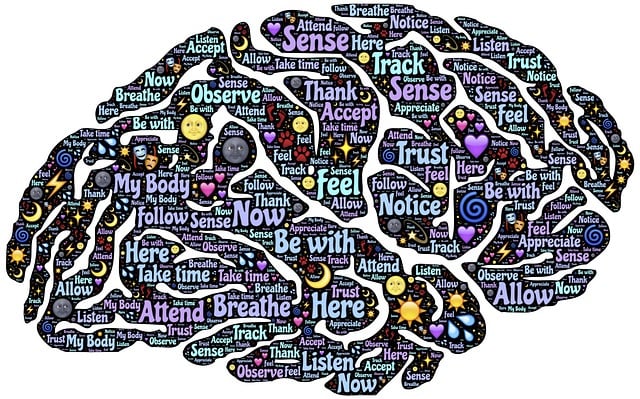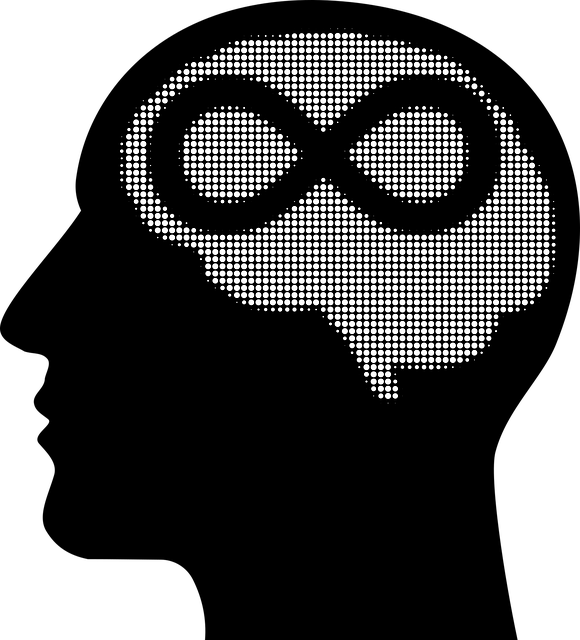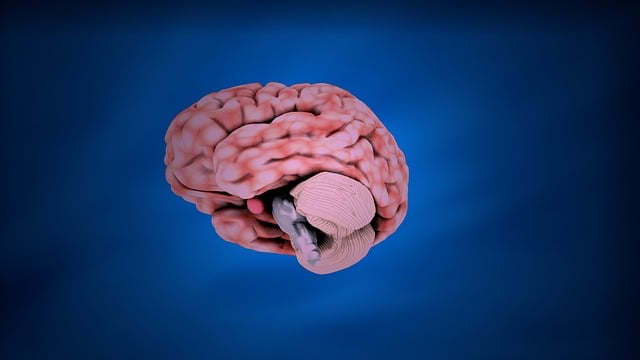Functional Neurological Disorder (FND) presents diagnostic challenges due to overlapping symptoms with other conditions like Parkinson's or conversion disorders. The digital age has brought advanced neuroimaging and AI algorithms that aid in early FND detection and accurate outcome prediction, crucial for relapse prevention. A holistic treatment approach combines talk therapy with practices like mindfulness to address physical and psychological aspects of FND. Public awareness campaigns, community outreach, and mental wellness coaching are key to early intervention, enhancing diagnosis accuracy, and ensuring access to appropriate therapy for Functional Neurological Disorder. Patient education equips individuals to recognize symptoms, fostering resilience and proactive management, ultimately improving therapy outcomes and quality of life.
Mental illness diagnosis accuracy is a critical aspect of patient care, especially for conditions like Functional Neurological Disorder (FND). This article explores efforts to enhance diagnostic precision, delving into the unique symptoms and challenges associated with FND. We examine advancements in technology, highlighting their role in improving accuracy. Additionally, it discusses diverse therapy integration, early intervention strategies, and patient education as key components of a holistic approach to treating FND, ultimately aiming for better mental health outcomes.
- Understanding Functional Neurological Disorder: Symptoms and Challenges
- Advancements in Diagnosis: Enhancing Accuracy through Technology
- Integrating Diverse Therapies: A Holistic Approach to Treatment
- Early Intervention Strategies: Preventing Misdiagnosis and Delayed Care
- Patient Education and Support: Empowering Individuals for Better Mental Health Outcomes
Understanding Functional Neurological Disorder: Symptoms and Challenges

Functional Neurological Disorder (FND) is a complex mental health condition that presents unique challenges for diagnosis and treatment. Characterized by physical symptoms like tremors, rigid muscles, or sensory disturbances, FND goes beyond typical neurological disorders as it’s often accompanied by significant emotional distress and disrupted daily functioning. The disorder can be particularly elusive because its symptoms overlap with those of other conditions, such as Parkinson’s disease or conversion disorders, adding a layer of complexity to accurate diagnosis.
Therapy for Functional Neurological Disorder involves a multifaceted approach, including specialized psychological interventions, rehabilitation techniques, and lifestyle adjustments. Mental health education programs designed to raise awareness about FND can help both patients and healthcare professionals recognize the distinct symptoms and challenges associated with this condition. Additionally, stress management and burnout prevention strategies are crucial as high levels of stress can exacerbate FND symptoms.
Advancements in Diagnosis: Enhancing Accuracy through Technology

The digital age has brought about significant advancements in mental health diagnosis, with technology playing a pivotal role in enhancing accuracy and accessibility. One notable area of progress is the integration of advanced neuroimaging techniques, such as functional magnetic resonance imaging (fMRI), which allows healthcare professionals to visualize brain activity and identify abnormalities associated with various mental illnesses. This innovative approach has shown promise in diagnosing conditions like Functional Neurological Disorder (FND), where symptoms can be subtle and challenging to pinpoint.
Moreover, artificial intelligence (AI) and machine learning algorithms are revolutionizing diagnostic processes. These tools can analyze vast amounts of patient data, including medical history, genetic information, and behavioral patterns, to predict mental health outcomes with impressive accuracy. For instance, AI-powered systems can assist in identifying early signs of relapse in individuals with mood disorders or pinpointing specific cognitive impairments in patients presenting with a range of neurological symptoms. Such advancements not only improve diagnosis but also open doors for personalized treatment plans, including effective Therapy for Functional Neurological Disorder, and contribute to the overall development of Mental Wellness Coaching Programs, while fostering Cultural Sensitivity in Mental Healthcare Practice.
Integrating Diverse Therapies: A Holistic Approach to Treatment

Integrating diverse therapies offers a holistic approach to mental illness treatment, aiming to address the complex interplay between mind and body. This method recognizes that functional neurological disorders (FNDs), for instance, often involve both physical symptoms and psychological distress. By combining traditional talk therapy with complementary practices like mindfulness meditation, healthcare professionals can provide more comprehensive care. Mindfulness meditation has shown promise in reducing symptoms of anxiety and depression, which are frequently associated with FNDs.
This holistic approach also extends to public awareness campaigns development and mental illness stigma reduction efforts, creating a supportive environment for individuals seeking therapy. Educating the public about the neurobiological basis of mental health conditions can foster understanding and empathy, encouraging early intervention and better support systems. Such initiatives contribute to a broader, more effective strategy to improve diagnosis accuracy and enhance overall well-being.
Early Intervention Strategies: Preventing Misdiagnosis and Delayed Care

Early intervention is a cornerstone in improving mental illness diagnosis accuracy and preventing misdiagnosis. By focusing on strategies that target both individuals and communities, we can significantly reduce delayed care for those experiencing symptoms. Public awareness campaigns play a pivotal role in educating the public about various mental health conditions, including lesser-known disorders like Functional Neurological Disorder (FND). These initiatives help to dispel myths and misconceptions, fostering a better understanding of mental wellness.
In addition to public education, Community Outreach Programs and Mental Wellness Coaching can serve as powerful tools. Coaching programs designed to support individuals experiencing early symptoms can provide valuable guidance and resources before formal diagnosis. By integrating these approaches, we aim to create a network of support that not only enhances the accuracy of diagnoses but also ensures timely access to appropriate therapy for Functional Neurological Disorder and other mental health challenges.
Patient Education and Support: Empowering Individuals for Better Mental Health Outcomes

Empowering individuals to take charge of their mental health is a key strategy in improving diagnosis accuracy and overall well-being. Patient education plays a pivotal role in this process, as it equips people with the knowledge to recognize symptoms and distinguish between normal emotional fluctuations and potential mental health issues. Through comprehensive learning, individuals can better understand their experiences, leading to earlier help-seeking behaviors. This proactive approach is especially crucial for conditions like Functional Neurological Disorders (FND), where early detection through patient awareness can significantly enhance therapy outcomes.
Self-awareness exercises and crisis intervention guidance are powerful tools within this educational framework. They enable people to develop inner strength, enabling them to navigate mental health challenges more effectively. By fostering self-reflection and coping mechanisms, individuals gain the resilience needed to manage symptoms and seek appropriate therapy, such as specialized treatment for FND. This holistic approach not only enhances diagnosis accuracy but also promotes long-term recovery and improved quality of life.
The pursuit of accurate mental illness diagnoses has led to significant advancements, particularly in understanding Functional Neurological Disorder (FND) and employing innovative technologies. By integrating diverse therapies and emphasizing early intervention through patient education, we can enhance treatment outcomes, ensuring individuals receive the appropriate care they need. As we continue to navigate the complexities of FND and other mental health challenges, these efforts underscore the importance of a holistic approach, ultimately fostering better mental health outcomes for all.














